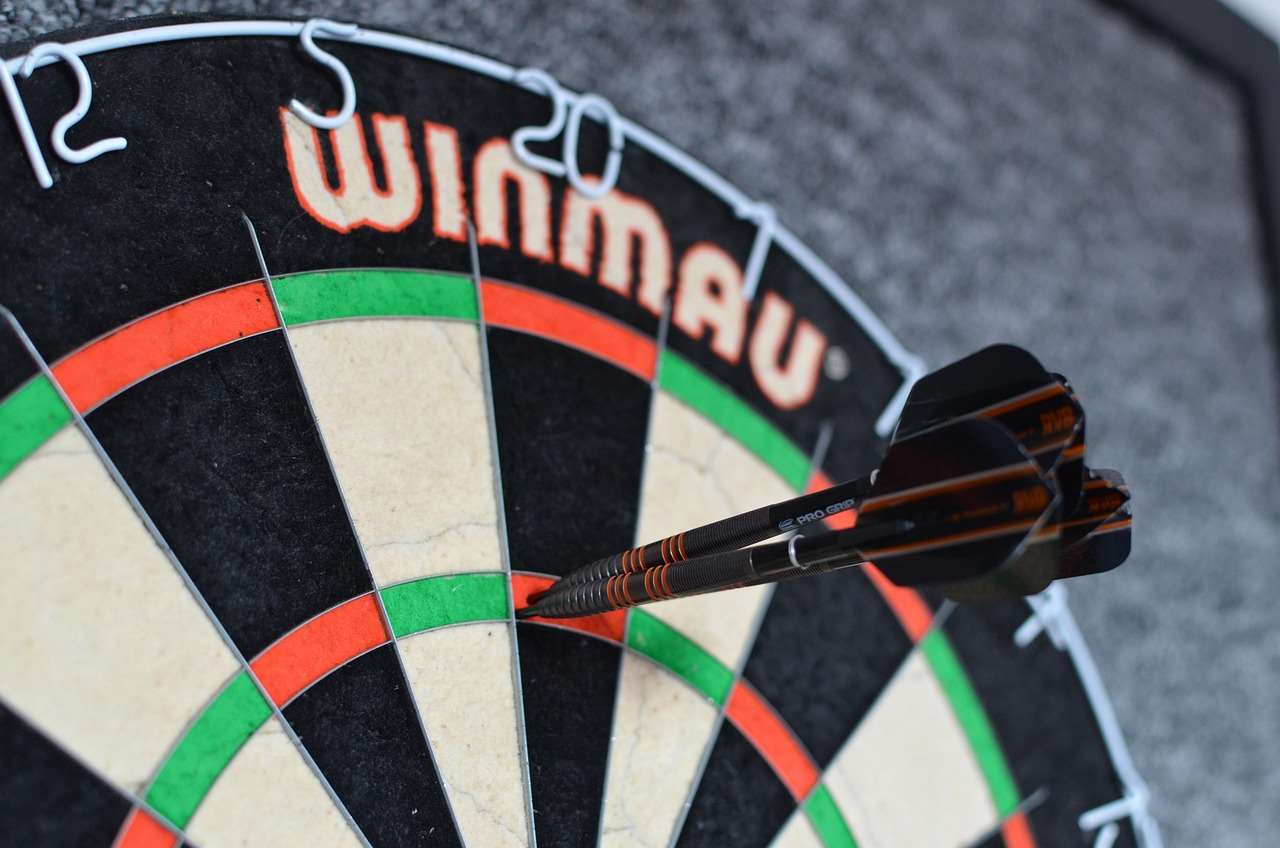Selecting the right fantasy darts scoring system is crucial for an enjoyable and competitive experience; understanding the nuances of each system empowers you to make informed choices and optimize your strategy. This article provides a comprehensive Fantasy Darts Scoring System Comparison, examining different scoring methods, their pros and cons, and offering tips for success.
⚠️ Still Using Pen & Paper (or a Chalkboard)?! ⚠️
Step into the future! The Dart Counter App handles all the scoring, suggests checkouts, and tracks your stats automatically. It's easier than you think!
Try the Smart Dart Counter App FREE!Ready for an upgrade? Click above!
Understanding Different Fantasy Darts Scoring Systems
The world of fantasy darts offers a variety of scoring systems, each designed to reward different aspects of performance. From predicting outright winners to meticulously tracking individual leg scores, the chosen system significantly impacts the strategies employed and the overall enjoyment of the game. Understanding these systems is the first step in building a winning fantasy darts team.

Common Scoring Approaches
- Points-Based Systems: These are arguably the most prevalent. Players earn points for various achievements, such as winning matches, hitting 180s, achieving high checkouts, and winning legs. The weighting of these achievements varies depending on the specific rules.
- Salary Cap Systems: You’re given a virtual budget to build your team. Higher-ranked and more consistent players typically cost more, forcing you to make strategic choices about balancing star power with value picks. These systems often incorporate a points-based component as well.
- Head-to-Head Systems: Similar to traditional fantasy sports leagues, you compete against another team each week, earning a win or loss based on your team’s total score.
- Draft-Based Systems: League participants take turns selecting players in a snake draft format. This creates a unique team composition challenge and requires careful planning and scouting.
Detailed Fantasy Darts Scoring System Comparison: Examples and Analysis
Let’s delve into specific examples of fantasy darts scoring systems and analyze their strengths and weaknesses. This Fantasy Darts Scoring System Comparison will empower you to choose a system that aligns with your preferences and skill level. Consider the impact of Impact Betting Sponsorship Darts.
Example 1: Simple Points Per Leg System
This is a basic system where players earn a fixed number of points for each leg they win. It’s straightforward to understand and track, making it ideal for beginners. However, it can be less rewarding for players who consistently hit high scores but lose close matches.
Pros:
- Easy to understand and implement
- Requires minimal tracking
- Suitable for casual players
Cons:
- Doesn’t reward individual performance beyond winning legs
- Can be less engaging for experienced players
- May not accurately reflect a player’s overall skill level
Example 2: Comprehensive Points System (e.g., Darts Betting And Fantasy Leagues Guide)
A more sophisticated system awards points for a wider range of achievements, such as:
- Match wins: 5 points
- Leg wins: 1 point
- 180s: 0.5 points
- Checkouts of 100+: 1 point
- Average above 90: 2 points
This system rewards both winning and individual skill, creating a more balanced and engaging experience.

Pros:
- Rewards a wider range of achievements
- More engaging for experienced players
- Provides a more accurate reflection of a player’s overall skill
Cons:
- Requires more detailed tracking
- Can be more complex for beginners to understand
- May require more time and effort to manage
Example 3: Salary Cap System with Points
In this system, each fantasy team has a set salary cap (e.g., $100 million) to acquire darts players. Players are assigned values based on their expected performance. This introduces a strategic layer of team building, forcing users to make difficult choices between superstars and value picks. Points are then awarded based on player performance, often using a comprehensive points system similar to the one described above.

Pros:
- Adds a strategic element of team building
- Requires careful player evaluation and scouting
- Can create a more competitive and balanced league
Cons:
- Can be time-consuming to research player values
- Requires a good understanding of darts and individual player form
- Can be frustrating if your high-priced players underperform
Key Considerations When Choosing a Fantasy Darts Scoring System
Several factors should influence your choice of a fantasy darts scoring system. Consider the following questions to ensure a satisfying experience:
- Your Experience Level: Are you new to fantasy darts, or are you a seasoned veteran? Beginners may prefer a simpler system, while experienced players may crave more complexity.
- Time Commitment: How much time are you willing to dedicate to managing your team? More complex systems require more tracking and analysis.
- League Preferences: What kind of league are you participating in? A casual league among friends might benefit from a simpler system, while a competitive league may demand a more sophisticated approach.
- Personal Preferences: Do you prefer to focus on winning, or do you enjoy tracking individual player performance? Choose a system that aligns with your personal preferences.
Strategies for Success in Different Fantasy Darts Systems
Regardless of the chosen system, certain strategies can increase your chances of success in fantasy darts. Let’s examine some general tips and system-specific approaches.
General Fantasy Darts Strategies
- Stay Informed: Follow the professional darts scene closely. Track player form, recent results, and any news that might impact performance.
- Analyze Statistics: Pay attention to key statistics such as averages, checkout percentages, and 180s per leg. These metrics can provide valuable insights into player performance.
- Consider Matchups: Analyze upcoming matchups and identify players who are likely to perform well against their opponents.
- Manage Your Roster: Stay active in the league and make roster changes as needed. Don’t be afraid to drop underperforming players and add promising free agents.
System-Specific Strategies
- Points-Based Systems: Focus on players who consistently win matches and achieve high scores across multiple categories. Prioritize players who are prolific 180 hitters and have strong checkout percentages.
- Salary Cap Systems: Identify undervalued players who are poised to outperform their assigned value. Look for players who are on the rise or who have favorable matchups. Betting Sponsorship Impact On Darts plays a role here.
- Head-to-Head Systems: Prioritize consistency. You need reliable players who can consistently score points each week to secure victories.

Advanced Fantasy Darts Tactics
Once you’ve mastered the basics, consider employing these advanced tactics to gain a competitive edge in your fantasy darts league.
Exploiting System Quirks
Every scoring system has its quirks. Identify and exploit these to maximize your points. For example, if your system heavily rewards 180s, prioritize players known for their high maximums, even if their overall averages are slightly lower than others. The comprehensive Fantasy Darts Scoring System Comparison above provides key insights here.
Streaming Players
In leagues with daily or weekly roster changes, consider “streaming” players. This involves adding players who have favorable matchups on a particular day or week and then dropping them after their matches are over. This can be a valuable strategy for maximizing your points output.
Trading Wisely
Trades can be a powerful tool for improving your team, but it’s important to trade wisely. Don’t be afraid to offer trades, but always be sure you’re getting good value in return. Consider the long-term implications of any trade before making a decision. Also be aware of how Betting Company Logos Player Shirts could affect a player.

The Future of Fantasy Darts Scoring Systems
The world of fantasy darts is constantly evolving, and new scoring systems are emerging all the time. Expect to see increased customization options, more advanced statistical analysis, and integration with live streaming platforms. As technology advances, fantasy darts will become even more immersive and engaging.
Ultimately, the best fantasy darts scoring system is the one that provides the most enjoyment and creates a competitive and engaging experience for all participants. By understanding the different options and considering your personal preferences, you can choose a system that will help you build a winning team and dominate your league.
Conclusion
This Fantasy Darts Scoring System Comparison highlights the diverse options available for fantasy darts enthusiasts. By understanding the strengths and weaknesses of each system, considering your own preferences and time commitment, and implementing effective strategies, you can maximize your enjoyment and success in the exciting world of fantasy darts. Remember to stay informed, analyze statistics, and manage your roster effectively. Now that you’re armed with this knowledge, join a league, build your dream team, and start throwing for glory! Also consider using this guide alongside our Darts Betting And Fantasy Leagues Guide. Good luck, and may your darts fly true!
Hi, I’m Dieter, and I created Dartcounter (Dartcounterapp.com). My motivation wasn’t being a darts expert – quite the opposite! When I first started playing, I loved the game but found keeping accurate scores and tracking stats difficult and distracting.
I figured I couldn’t be the only one struggling with this. So, I decided to build a solution: an easy-to-use application that everyone, no matter their experience level, could use to manage scoring effortlessly.
My goal for Dartcounter was simple: let the app handle the numbers – the scoring, the averages, the stats, even checkout suggestions – so players could focus purely on their throw and enjoying the game. It began as a way to solve my own beginner’s problem, and I’m thrilled it has grown into a helpful tool for the wider darts community.